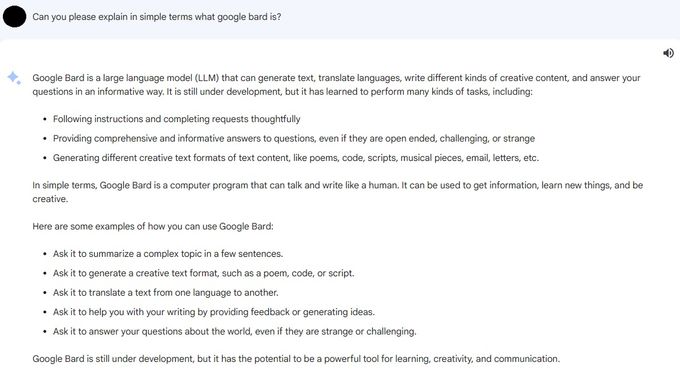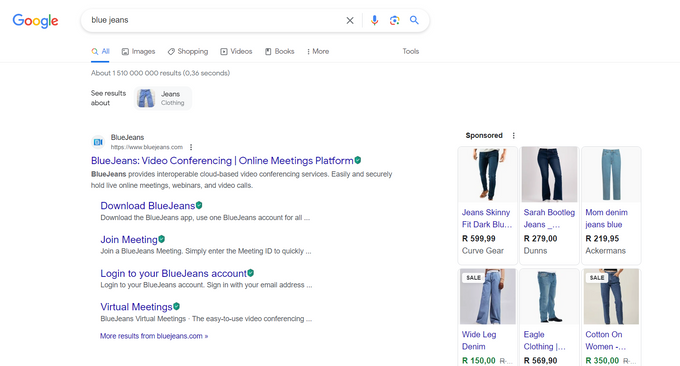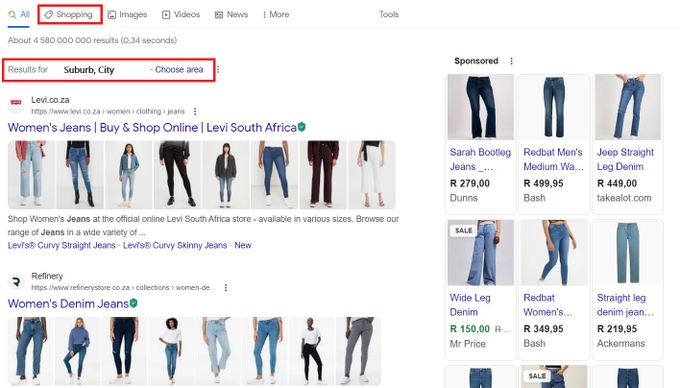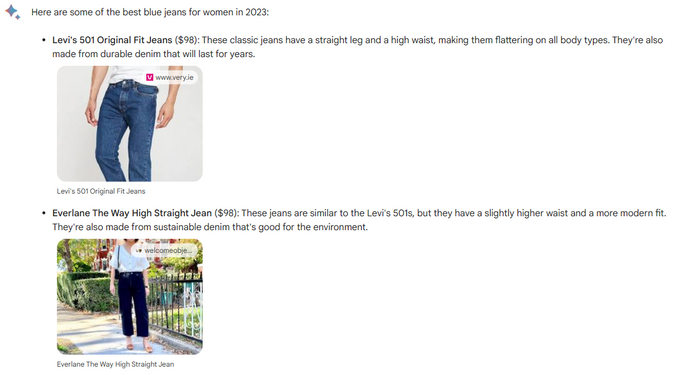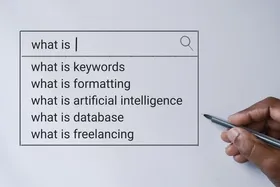Google Bard vs. Google Search: Is One Better Than the Other?
Google Bard vs. Google Search in the battle for eCommerce dominance
Updated November 19, 2024

eCommerce is a dynamic and highly competitive field. This means that online stores need cutting-edge tools to optimize their online presence and enhance customer experiences. Google, a tech giant, offers two formidable solutions for search and discovery: Google Bard and Google Search.
Both bring unique strengths to the table that can enhance your business. However, the question on every eCommerce entrepreneur's mind is: which one will lead the way? Let’s dive into the key distinctions between Google Bard vs. Google Search and explore how these tools can impact the future of eCommerce success.
Meet the Expert
Jameela Ghann is a seasoned online store owner with over a decade of eCommerce experience. Apart from running Alora Boutique, she's also the marketing manager for Fera Product Reviews.
What is Google Bard?
According to itself, Google Bard is a large language model that can generate text, translate languages, write different kinds of creative content, and answer your questions in an informative way.
In simpler terms, Google Bard is a computer program that can talk and write like a human. This makes it similar to ChatGPT. However, Google Bard has access to the internet and can give you real-time answers. ChatGPT relies on an offline database and is better suited as a conversational assistant.
What is Google Search?
Google Search is a popular internet search engine. It helps you find information on the web by allowing you to type in keywords or phrases, and then it provides a list of websites and content related to your query, helping you quickly locate the information you're looking for.
5 Key Differences between Google Bard and Google Search
1. Nature of Responses
- Google Bard: A language model that generates comprehensive, tailored answers to specific queries.
- Google Search: Primarily provides links to relevant websites, which users need to explore to find answers.
2. Open-Ended Questions
- Google Bard: Excels at handling open-ended queries and can provide personalized recommendations.
- Google Search: Better suited for general research but may not provide detailed responses to open-ended questions.
3. User-Friendly Interface
- Google Bard: It offers a user-friendly experience, making information retrieval a breeze.
- Google Search: Robust search functions but can be less user-friendly compared to Google Bard.
4. Use Cases
- Google Bard: Well-suited for content generation, research, and specific user needs.
- Google Search: Often used for general research and provides results that cater to a broader audience and bottom-of-funnel inquiries.
5. Personalization
- Google Bard: Provides personalized and relevant search results based on user prompts and queries.
- Google Search: Offers results based on relevance to the query but may not provide the same level of personalization as Google Bard.
How Search Results Differ for eCommerce Websites
When it comes to searching for eCommerce products and websites, the results you obtain can vary significantly between Google Bard and Google Search. Here's a breakdown of these differences:
Google Search
- Prominently displays Google Shopping results, showing products available for purchase.
- May feature local search results for nearby businesses, catering to local product or service inquiries.
- Infers user intent based on history and search behavior, providing relevant results even for vaguely phrased queries.
Google Bard
- Offers detailed answers and insights but doesn't emphasize product listing as much as Google Search.
- Focuses more on textual responses and information, rather than highlighting product listings.
- Includes images but doesn't offer the same variety of product listings and shopping-oriented results.
Let's compare a search for blue jeans shopping to illustrate:
Google Search:
- Shopping tab
- Local results
- Abundance of product images
- One click to access products on different stores
- Better suited for customers who are intent on purchasing
Google Bard:
- Fewer images and product listings
- Contextual responses that aim to give advice
- Better suited for customers who are still just doing research and not ready to buy
3 Benefits for eCommerce Websites from Google Bard and Google Search
1. Efficiency in Content Creation
- Google Bard and Google Search streamline the content creation processes. This is particularly beneficial when crafting engaging product descriptions, writing compelling CTAs (calls to action), and generating textual content.
- You can produce content more swiftly, ensuring a consistent flow of information and marketing materials.
2. Enhanced Research Capabilities
- Leveraging Google Bard and Google Search for research purposes allows you to gather valuable insights and data efficiently.
- This research aids in better understanding target audiences, market trends, and competitive landscapes, facilitating data-driven decision-making.
3. Improved SEO Practices
- Google Bard and Google Search can assist in creating SEO-friendly website content and product descriptions.
- For smaller businesses with limited resources for specialized SEO efforts, this technology provides a more accessible means of optimizing their online presence.
Challenges and Mitigations for Transitioning to Google Bard
Transitioning from manual content creation and optimization to Google Bard can be a significant step. However, it's not without its challenges. Here are some common hurdles you might face and strategies to mitigate them:
| | Challenge | Mitigation |
|---|---|---|
| Accuracy and Literal Interpretation | It's important not to take Google Bard's responses as gospel and understand that its answers might not always be entirely accurate. | Encourage a critical mindset among team members and users. Verify information provided by Google Bard with other reliable sources. |
| Cost Considerations | Using Google Bard may come at a cost, which can impact budget-conscious businesses. | Plan your budget accordingly. Assess the potential benefits and ROI (Return on Investment) that Google Bard can bring to your eCommerce operations. |
| Complexity of Usage | While user-friendly in terms of interface, Google Bard can be complex when it comes to formulating precise questions and knowing what to ask. | Invest in training resources, such as free YouTube tutorials, Reddit subreddits, and online courses, to upskill your team. Start with simpler queries and gradually explore more complex ones as you become comfortable. |
| Phased Implementation | Implementing Google Bard across all aspects of your eCommerce operations at once can be overwhelming. | Start with a phased approach. Begin by focusing on specific areas where Google Bard can provide the most value, such as headline creation or product descriptions. Monitor your progress and adjust your strategy accordingly. |
Achieving eCommerce Success with Google Bard and Google Search
As an eCommerce business, the key to success lies in understanding your objectives and leveraging the right tool for each task. By harnessing the potential of Google Bard and Google Search, you can unlock efficiency in content creation, enhance your research capabilities, improve your SEO practices, and create engaging product descriptions.
While challenges may arise during the transition, strategic planning, training, and a phased approach can overcome these obstacles.
